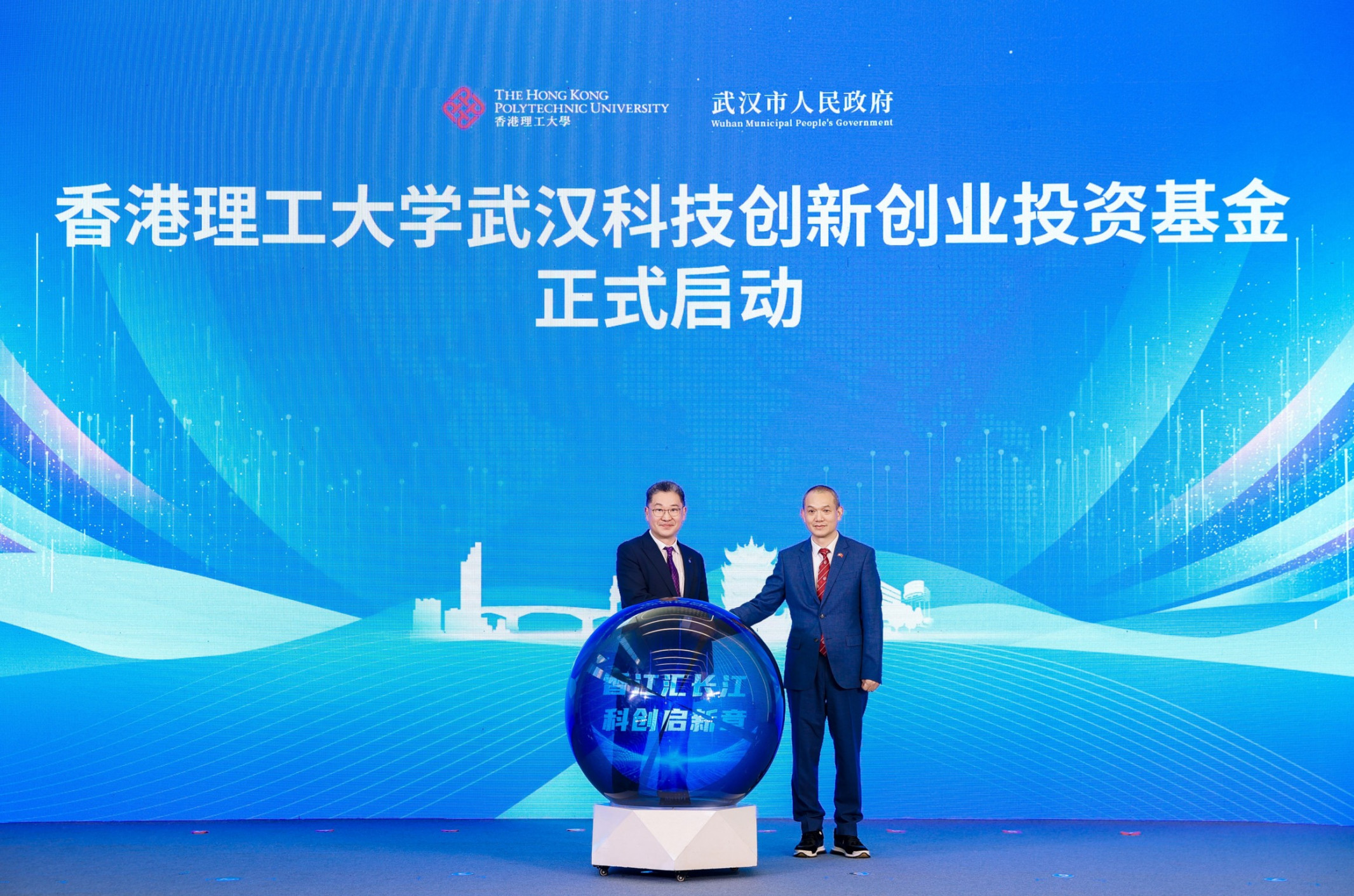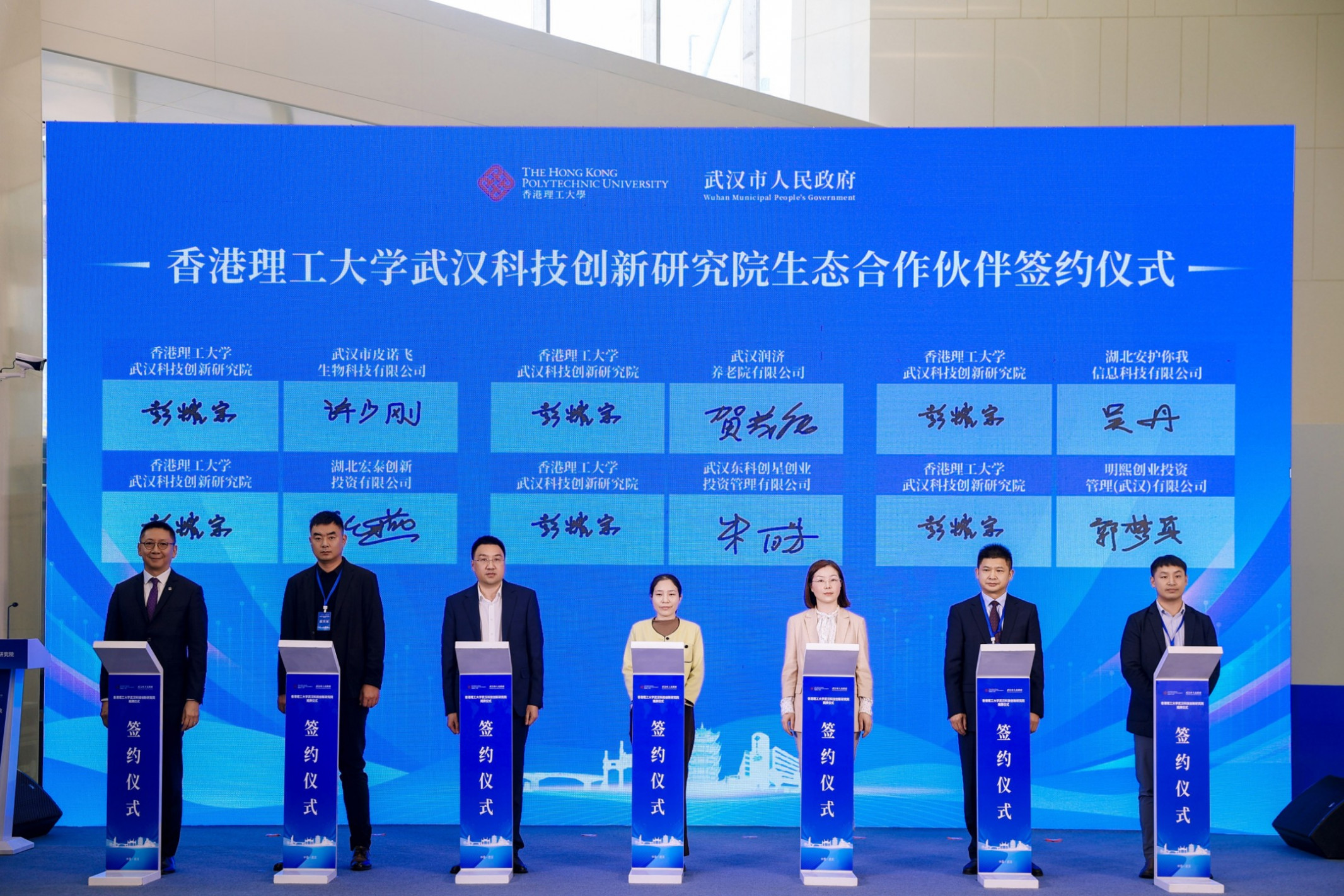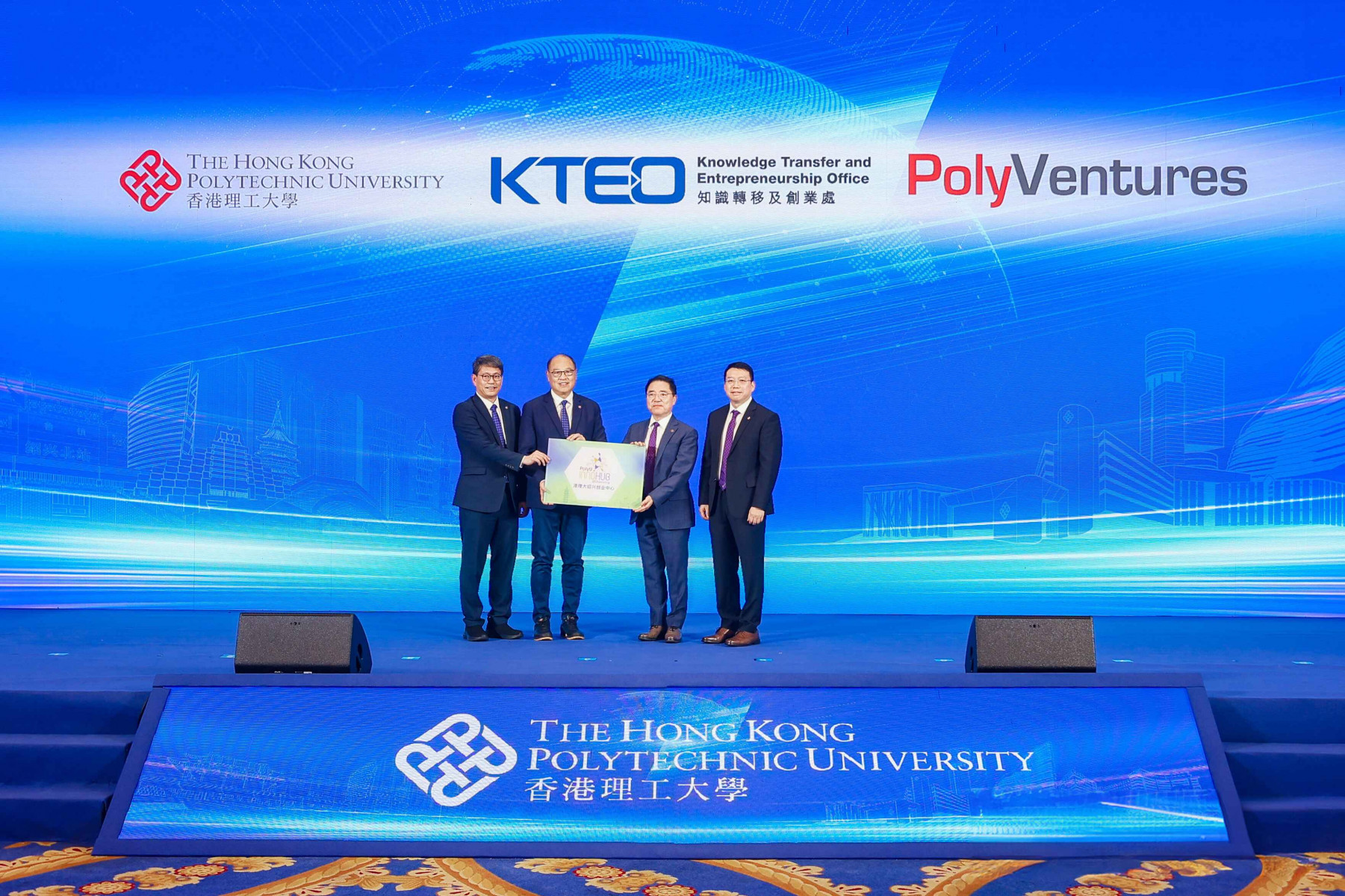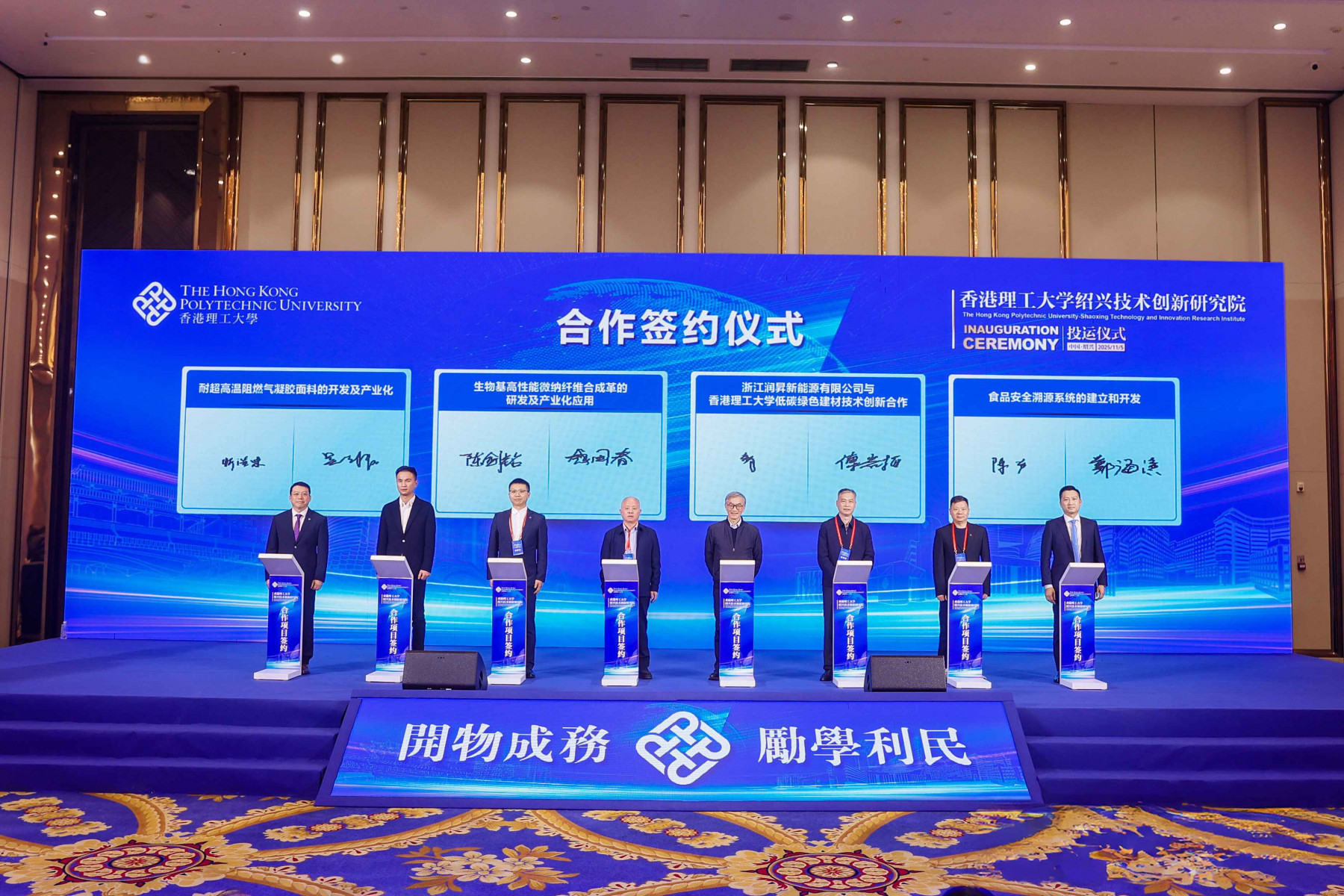Unveiling of Wuhan and Shaoxing MTRIs: new milestones in Mainland expansion
PolyU’s Mainland Translation Research Institutes (MTRIs) are rapidly becoming a cornerstone of the University’s strategy to drive high-quality development across China. Twelve MTRIs have already been established in strategic cities, with several already in full operation. Each institute leverages PolyU’s research expertise to conduct high-impact research and development work. The recent official unveiling of the PolyU-Wuhan Technology and Innovation Research Institute and the PolyU-Shaoxing Technology and Innovation Research Institute marks significant progress in this expansion.
Through the MTRIs, PolyU aligns its research capabilities with the specific industrial and societal needs of each city, delivering targeted solutions that enhance both research impact and local development. Engagement with government officials and community stakeholders further strengthens ties and fosters knowledge exchange. Additionally, the MTRIs serve as incubators for PolyU startups, providing access to funding, talent, and commercialisation platforms. Leveraging the cities’ consumer base, robust government support, and tech ecosystems, these institutes create valuable opportunities for innovation and entrepreneurship.
Advancing healthcare innovations with Wuhan
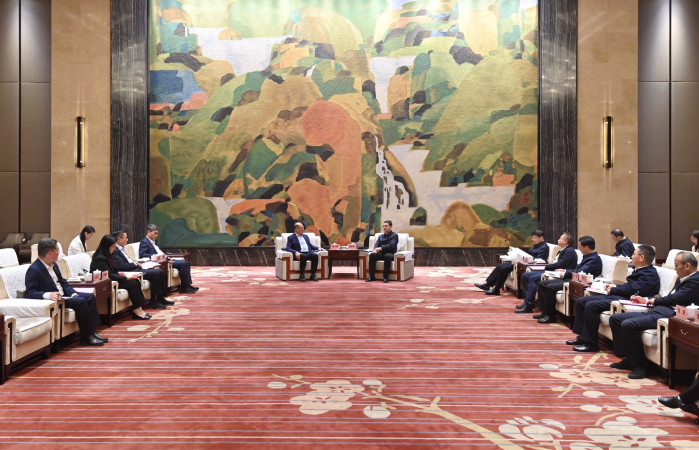
Mr Sheng Yuechun, Member of the Standing Committee of the Hubei Provincial Party Committee and Secretary of the Wuhan Municipal Party Committee, held in-depth discussions with the PolyU delegation, led by Dr Lam Tai-fai, regarding the future development of the PolyU-Wuhan Technology and Innovation Research Institute.
Jointly established by PolyU, the Wuhan Municipal People’s Government, and Qiaokou District People’s Government, the PolyU-Wuhan Technology and Innovation Research Institute was unveiled in November. This marks a significant milestone, as PolyU becomes the first university in Hong Kong to set up a technology and innovation research institute in Wuhan in partnership with the Hubei Provincial People’s Government.
The Institute focuses on research in optometry, digital health, rehabilitation science, advanced medical technology, and smart ageing. It features a 4,000-square-metre facility with 17 specialised laboratories, bringing together top research teams led by six PolyU professors. Additionally, four major centres have been established, dedicated to ophthalmology and optometry, optoelectronic health monitoring, smart ageing and rehabilitation, and smart nursing.
The unveiling ceremony took place in Wuhan and was officiated by Dr Lam Tai-fai, PolyU Council Chairman; Professor Christopher Chao, Senior Vice President (Research and Innovation); Mr Meng Hui, Vice Mayor of Wuhan; Mr Jiang Tiebin, Deputy Head of the Organisation Department of the Wuhan Municipal Party Committee and Director of the Municipal Talent Work Bureau; Mr Zhu Xiaobin, Deputy Director of the Foreign Affairs Office of the Hubei Provincial Party Committee and Deputy Director of the Hong Kong and Macao Affairs Office; Ms Dong Danhong, Secretary of the Party Leadership Group and Director of the Wuhan Municipal Bureau of Science and Technology Innovation; Ms Bai Meixia, Acting Director of the Government of Hong Kong Special Administrative Region of the People’s Republic of China’s Wuhan Economic and Trade Office; and Mr Zhou Geng, Secretary of the Qiaokou District Party Committee.
During the event, Professor He Mingguang, Director of the Institute and Chair Professor of Experimental Ophthalmology at PolyU’s School of Optometry, together with Mr Chen Hua, Vice President of the Hong Kong Hubei Association and Founding Partner of Gaosen Capital, launched the PolyU Wuhan Science and Technology Innovation and Entrepreneurship Investment Fund. The Institute also signed agreements with 22 local enterprises and partners to facilitate research projects and deepen industry integration.
Prof. He Mingguang (left) and Mr Chen Hua (right) unveiled the plaque for the PolyU Wuhan Science and Technology Innovation and Entrepreneurship Investment Fund. |
Prof. Marco Pang, Director of the Institute’s Rehabilitation Centre and Head of PolyU’s Department of Rehabilitation Sciences (1st from left), represented the Institute in signing agreements with enterprises. |
Fostering textile technologies with Shaoxing
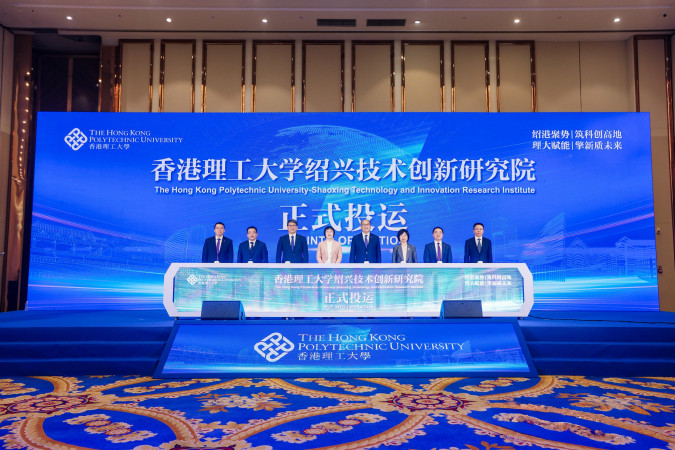
Dr Lam Tai-fai (4th from right), Prof. Christopher Chao (3rd from left), Prof. Dong Cheng (2nd from right), Prof. John Xin (1st from left), Ms Wu Dengfen (4th from left), Ms Zhang Xue (3rd from right), Mr Jing Yao (2nd from left), and Mr Pan Xiaodong (1st from right) officiated at the inauguration ceremony in Shaoxing.
With a research focus on textiles and related technologies, the PolyU-Shaoxing Technology and Innovation Research Institute was officially inaugurated in November. Jointly established by PolyU and the People’s Government of Keqiao District, Shaoxing, the Institute held its inauguration and a plaque-unveiling ceremony for InnoHub@Shaoxing, a dedicated space to foster idea exchange and entrepreneurship. This event marks a new milestone in technological innovation cooperation between Hong Kong and Shaoxing, and further advances the integrated development of the Yangtze River Delta.
The Institute’s research areas include textile technology, carbon fibre composite materials and applications, and advanced construction, aligning with both local industrial needs and national strategies. Leveraging PolyU’s strengths in research innovation and knowledge transfer, the Institute aims to drive technological advancement and the transformation of research outcomes, contributing to sustainable regional development and setting a model for Hong Kong-Shaoxing collaboration.
The inauguration ceremony in Shaoxing was officiated by Dr Lam Tai-fai; Professor Christopher Chao; Professor Dong Cheng, Associate Vice President (Mainland Research Advancement); Professor John Xin, Director of PolyU-Shaoxing Technology and Innovation Research Institute, together with Ms Wu Dengfen, Deputy Secretary of the Shaoxing Municipal Party Committee and Mayor; Ms Zhang Xue, Vice Mayor of the Shaoxing People’s Government; Mr Jing Yao, Deputy Secretary of the Keqiao District Party Committee and District Mayor; and Mr Pan Xiaodong, Standing Committee Member and Head of the Organisation Department of the Keqiao District Party Committee.
Dr Lam highlighted the significance of the collaboration, noting the strong support from all levels of government for higher education and technological innovation. He emphasised PolyU’s commitment to deepening collaborative innovation among government, industry, academia, and research for mutual benefit and growth.
At the event, Dr Lam Tai-fai (2nd from left) and Prof. Christopher Chao (1st from left) presented the plaque to Prof. Dong Cheng (2nd from right) and Prof. John Xin (1st from right) to mark the unveiling of InnoHub@Shaoxing. |
The Institute signed agreements with several local enterprises to strengthen cooperation in technological innovation and promote deeper integration with industry. |
In addition to the MTRIs in Wuhan and Shaoxing, PolyU has ten other MTRIs located in Jinjiang, Wuxi, Hangzhou, Wenzhou, Huizhou, Nanjing, Zhongshan, Hefei, Ganzhou, and Zibo. Furthermore, a Mainland Translational Research Centre (MTRC) has been established in Qianhai.




